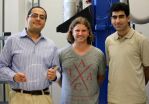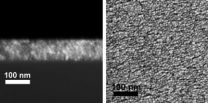(Press-News.org) They say the real crisis stems from current incentives that reward companies for developing large numbers of new drugs with few clinical advantages over existing ones.
Since the early 2000s, numerous articles and reports have claimed that the pipeline for new drugs will soon run dry, write Donald Light from the University of Medicine and Dentistry of New Jersey and Joel Lexchin from York University in Toronto. Yet data indicate that the number of new drugs licensed remains at the long term average range of 15-25 a year.
The authors argue that telling "innovation crisis" stories to politicians and the press "serves as a ploy to attract a range of government protections from free market competition."
Furthermore, independent reviews have concluded that about 85-90% of all new drugs over the past 50 years have provided few benefits and considerable harms.
And, although the industry emphasises how much money it devotes to discovering new drugs, they say most research funds go towards developing scores of minor variations that produce a steady stream of profits. Heavy promotion of these drugs can account for up to 80% of a nation's drug spending, they add.
They also warn that companies exaggerate research and development costs to lobby for more protection from free market competition. Yet, according to an independent analysis, the 1.3% of revenues devoted to discovering new molecules compares with an estimated 25% spent on promotion, giving a ratio of basic research to marketing of 1:19.
So, what can be done to change the business model of the pharmaceutical industry to focus on more cost effective, safer medicines, they ask?
The first step should be to stop approving so many new drugs of little therapeutic value. "EU countries are paying billions more than necessary for drugs that provide little health gain because prices are not being set to reward new drugs in proportion to their clinical value," they say.
They also believe that regulators should be publicly funded "to end industry's capture of its regulator" and that new ways of rewarding innovation should be considered. "This approach would save countries billions in healthcare costs and produce real gains for people's health, they conclude.
A second article argues that drug manufacturers should have to show how their products compare to existing treatments before approval Jonathan Cylus from the London School of Economics and colleagues say that the benefits of requiring comparative evidence for new drugs outweigh the risks, and would help ensure that the best therapies reach patients.
Raising the evidence standards could also encourage manufacturers to concentrate on the development of new drugs in therapeutic areas with few or no alternatives, they add.
### END
Innovation crisis in drug research is a myth, warn experts
The real crisis is rewarding companies for new drugs with no added benefit
2012-08-08
ELSE PRESS RELEASES FROM THIS DATE:
Families should not be allowed to veto dead relatives' organ donation wishes
2012-08-08
It has recently been suggested that patients should be kept alive using elective ventilation to facilitate the harvesting of organs for donation. But David Shaw, Honorary Lecturer at the University of Aberdeen believes there is a much simpler way to increase the number of donated organs – by ensuring that doctors respect the wishes of the deceased and over-rule any veto.
Veto by the family is the main impediment to an increase in organ donation, with at least 10% of families refusing to donate. Yet Shaw points out that families have no legal grounds for over-riding the ...
Balance and strength training can prevent falls in older people
2012-08-08
Balance and strength training is known to reduce falls in older adults. However, less than 10% of older people routinely engage in strength training and it is likely that this is much lower for activities that challenge balance.
It has been suggested that integrating exercise into everyday activities may help people stick to it, but this approach has never been investigated in frail older people at risk of falls.
So a team of researchers at the University of Sydney designed and tested the Lifestyle integrated Functional Exercise (LiFE) programme, which involves embedding ...
Study finds a new pathway for invasive species – science teachers
2012-08-08
CORVALLIS, Ore. – A survey of teachers from the United States and Canada found that one out of four educators who used live animals as part of their science curriculum released the organisms into the wild after they were done using them in the classroom.
Yet only 10 percent of those teachers participated in a planned release program, increasing the likelihood that the well-intentioned practice of using live organisms as a teaching tool may be contributing to invasive species problems.
The study was presented today (Aug. 7) in Portland at the national meeting of the ...
Plain packaging of cigarettes encourages young smokers to heed health warnings
2012-08-08
New research published online in the scientific journal Addiction shows that plain packaging (requiring cigarettes to be packaged in standard packages without attractive designs and imagery) may help to draw the attention of some adolescent smokers to the health warnings on the package. If so, this may in turn deter young smokers from continuing to smoke.
Researchers asked eighty-seven teenage secondary school (high school) students from the city of Bristol, UK, to look at twenty images of cigarette packs on a computer screen for ten seconds each while a device tracked ...
Thinner diabetics face higher death rate
2012-08-08
CHICAGO --- American adults of a normal weight with new-onset diabetes die at a higher rate than overweight/obese adults with the same disease, according to a new Northwestern Medicine study.
The study, to be published in the Aug. 7 issue of JAMA, found that normal-weight participants experienced both significantly higher total and non-cardiovascular mortality than overweight/obese participants.
Normal-weight adults with type 2 diabetes have been understudied because those who typically develop the disease are overweight or obese. In this study about 10 percent of those ...
Coach could be key in helping stroke patients
2012-08-08
WINSTON-SALEM, N.C. – August 6, 2012 – When a stroke patient is discharged from the hospital, they often must cope with a new disability or lack of function, so changes in their medications or a new dosing prescription can be particularly confusing. This can lead the patient to overmedicate, take the wrong medication or skip medications entirely and can result in being readmitted to the hospital.
But a pilot study that is looking at a new discharge strategy and being led by researchers at Wake Forest Baptist Medical Center, indicates that phone calls and conversations ...
Using millions of years of cell evolution in the fight against cancer
2012-08-08
As the medical community continues to make positive strides in personalized cancer therapy, scientists know some dead ends are unavoidable. Drugs that target specific genes in cancerous cells are effective, but not all proteins are targetable. In fact, it has been estimated that as few as 10 to 15 percent of human proteins are potentially targetable by drugs. For this reason, Georgia Tech researchers are focusing on ways to fight cancer by attacking defective genes before they are able to make proteins.
Professor John McDonald is studying micro RNAs (miRNAs), a class ...
UCF nanoparticle discovery opens door for pharmaceuticals
2012-08-08
What a University of Central Florida student thought was a failed experiment has led to a serendipitous discovery hailed by some scientists as a potential game changer for the mass production of nanoparticles.
Soroush Shabahang, a graduate student in CREOL (The College of Optics & Photonics), made the finding that could ultimately change the way pharmaceuticals are produced and delivered.
The discovery was based on using heat to break up long, thin fibers into tiny, proportionally sized seeds, which have the capability to hold multiple types of materials locked in ...
New drug successfully halts fibrosis in animal model of liver disease
2012-08-08
A study published in the online journal Hepatology reports a potential new NADPH oxidase (NOX) inhibitor therapy for liver fibrosis, a scarring process associated with chronic liver disease that can lead to loss of liver function.
"While numerous studies have now demonstrated that advanced liver fibrosis in patients and in experimental rodent models is reversible, there is currently no effective therapy for patients," said principal investigator David A. Brenner, MD, vice chancellor for Health Sciences and dean of the School of Medicine at the University of California, ...
Chemists advance clear conductive thin films
2012-08-08
PROVIDENCE, R.I. [Brown University] — In a touch-screen display or a solar panel, any conductive overlay had better be clear. Engineers employ transparent thin films of indium tin oxide (ITO) for the job, but a high-tech material's properties are only half its resume. They must also be as cheap and easy to manufacture as possible. In a new study, researchers from Brown University and ATMI Inc. report the best-ever transparency and conductivity performance for an ITO made using a chemical solution, which is potentially the facile, low-cost method manufacturers want.
"Our ...
LAST 30 PRESS RELEASES:
How some skills become second nature
SFU study sheds light on clotting risks for female astronauts
UC Irvine chemists shed light on how age-related cataracts may begin
Machine learning reveals Raman signatures of liquid-like ion conduction in solid electrolytes
Children’s Hospital of Philadelphia researchers emphasize benefits and risks of generative AI at different stages of childhood development
Why conversation is more like a dance than an exchange of words
With Evo 2, AI can model and design the genetic code for all domains of life
Discovery of why only some early tumors survive could help catch and treat cancer at very earliest stages
Study reveals how gut bacteria and diet can reprogram fat to burn more energy
Mayo Clinic researchers link Parkinson's-related protein to faster Alzheimer's progression in women
Trends in metabolic and bariatric surgery use during the GLP-1 receptor agonist era
Loneliness, anxiety symptoms, depressive symptoms, and suicidal ideation in the all of us dataset
A decision-support system to personalize antidepressant treatment in major depressive disorder
Thunderstorms don’t just appear out of thin air - scientists' key finding to improve forecasting
Automated CT scan analysis could fast-track clinical assessments
New UNC Charlotte study reveals how just three molecules can launch gene-silencing condensates, organizing the epigenome and controlling stem cell differentiation
Oldest known bony fish fossils uncover early vertebrate evolution
High‑performance all‑solid‑state magnesium-air rechargeable battery enabled by metal-free nanoporous graphene
Improving data science education using interest‑matched examples and hands‑on data exercises
Sparkling water helps keep minds sharp during long esports sessions
Drone LiDAR surveys of abandoned roads reveal long-term debris supply driving debris-flow hazards
UGA Bioinformatics doctoral student selected for AIBS and SURA public policy fellowship
Gut microbiome connected with heart disease precursor
Nitrous oxide, a product of fertilizer use, may harm some soil bacteria
FAU lands $4.5M US Air Force T-1A Jayhawk flight simulator
SimTac: A physics-based simulator for vision-based tactile sensing with biomorphic structures
Preparing students to deal with ‘reality shock’ in the workplace
Researchers develop beating, 3D-printed heart model for surgical practice
Black soldier fly larvae show promise for safe organic waste removal
People with COPD commonly misuse medications
[Press-News.org] Innovation crisis in drug research is a myth, warn expertsThe real crisis is rewarding companies for new drugs with no added benefit

